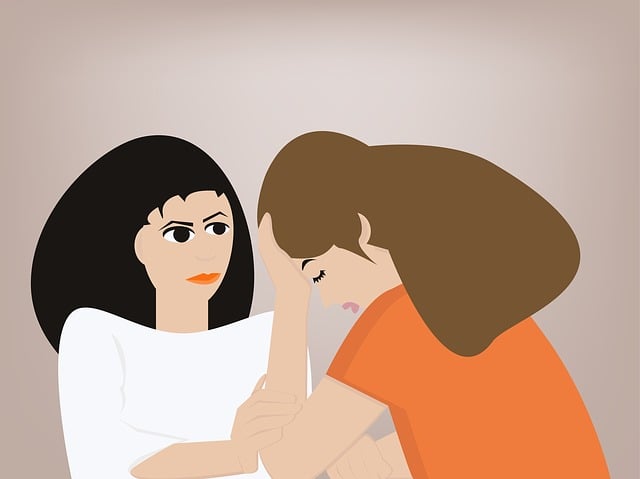Share This Article:

Sarasota, FL (WorkersCompensation.com) – A recent survey on women’s health has strengthened some alarming trends that should be concerning for women, and their employers.
Primary care group Parsley Health conducted an online survey in July of this year, questioning women about their health experiences. Focusing on root cause medicine, Parsley Health has an 85 percent success rate of patients improving symptoms and reducing reliance on prescription drugs.
Parsley Health recently shared the results of their survey, which included answers from 1,271 employed women, aged 18 to 60, with the largest age group ranging from age 30 to 60 at 72%. Around 40 percent of survey respondents were located in the West and Midwest.
Forty-seven percent of the women polled stated that their health issues have affected their work productivity within the last 60 days. Forty-three percent stated that they have missed a day or more of work due to their health for the same time period.
Fatigue or lack of sleep ranked the top reason for missing work, at 37 percent. Headaches and migraines ranked second at 35 percent, and general malaise ranked third at 28 percent. Infections ranked fourth at 27 percent, followed by mental health at 24 percent, physical pain at 25 percent, and digestive issues at 22 percent. The Parsley analysts noted that participants reporting 7 or more symptoms were twice as likely to state that their health had impacted their work productivity.
Sixty-seven percent of the women polled stated they were having trouble getting a clear diagnosis, of which 25 percent stated they were still waiting for a diagnosis or gave up early. The report noted that the seven reasons for missing work are often associated with symptoms for autoimmune, gastrointestinal, mental, cardio metabolic, or hormonal health conditions, which often go undiagnosed.
The survey pointed out that across 700 conditions, on average women are diagnosed later than men. Around 55 percent of women report feeling dismissed or ignored by their provider.
The survey showed that 8 out of 10 women were delaying care until their symptoms worsen or affected their daily lives. When asked why they were not seeking care, 44 percent stated they did not have the time to go to the doctor. Thirty-four percent stated they were discouraged by their previous experiences in healthcare and felt like they were not helped. Twenty-four percent stated they were worried that the answer would be to take a prescription medication, and they did not want to take more prescriptions.
According to a 2016 study from the Peterson Institute for International Economics, organizations that had at least 30 percent female leadership had a 15 percent increase in profitability compared to those businesses without upper level female leadership. Yet, numerous studies have shown that women are not only sick more often than men, but are sicker on average.
Around 85 percent of women have two or more chronic conditions. In this survey, 24 percent of the women polled reported having been diagnosed with an autoimmune condition. Of those, 63 percent reported having mental health conditions, 62 percent reported having a GI condition, and 48 percent reported having a hormonal imbalance.
There are more than 80 known autoimmune conditions, of which $80 billion is spent annually on women with autoimmune conditions. On average, patients see at least 4 doctors, waiting 4.5 years with symptoms before ever receiving an accurate diagnosis.
According to the results of the survey, Parsley Health feels that women are missing work for symptoms that the current traditional healthcare system is not designed to accurately diagnose or effectively treat. The group believes that ease of access, a central source for care, less referrals, and a focus on root causes could ultimately lead to increased productivity, lower absenteeism, and reduced healthcare costs for employers. Studies have shown under a comprehensive health approach, the savings amounts to $3.27 saved for every $1.00 spent over the course of 3 years, and a 25 percent improvement in absenteeism.
When asked about what they wanted, 49 percent of the women polled stated they wanted comprehensive support by a provider who understood their needs without having to refer to a specialist. Forty percent stated they wanted a provider that could diagnose the root cause and create a clear treatment plan, and 44 percent indicated they wanted more solutions to their specific health issues. Thirty-nine percent stated they wanted better care management that helped them coordinate their care needs.
According to the Parsley Health’s claims data, with their root cause approach they have not only had an 85 percent success rate, but their approach has resulted in a 65 to 75 percent reduction in medication usage across all major conditions. Additionally, they show a 77 percent reduction in specialist utilization and a 32 percent decrease in total medical expenses.
AI california case management case management focus claims compensability compliance courts covid do you know the rule emotions exclusive remedy florida FMLA glossary check Healthcare health care hr homeroom insurance insurers iowa leadership medical NCCI new jersey new york ohio osha pennsylvania roadmap Safety state info technology texas violence WDYT west virginia what do you think women's history women's history month workcompcollege workers' comp 101 workers' recovery Workplace Safety Workplace Violence
Read Also
- Apr 27, 2025
- Frank Ferreri
- Apr 27, 2025
- Chris Parker
About The Author
About The Author
-
F.J. Thomas
F.J. Thomas has worked in healthcare business for more than fifteen years in Tennessee. Her experience as a contract appeals analyst has given her an intimate grasp of the inner workings of both the provider and insurance world. Knowing first hand that the industry is constantly changing, she strives to find resources and information you can use.
More by This Author
Read More
- Apr 27, 2025
- Frank Ferreri
- Apr 27, 2025
- Chris Parker
- Apr 27, 2025
- Chris Parker
- Apr 25, 2025
- Liz Carey
- Apr 24, 2025
- Frank Ferreri




